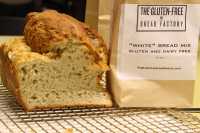Author Interviews, Brigham & Women's - Harvard, Cancer Research, Hepatitis - Liver Disease, JAMA / 22.02.2019
Whole Grains and Fiber Linked to Lower Risk of Liver Cancer
MedicalResearch.com Interview with:
Xuehong Zhang, MD, ScD
Assistant Professor in Medicine
Harvard Medical School
Associate Epidemiologist
Brigham and Women's Hospital
Boston, MA
MedicalResearch.com: What is the background for this study?
Response: In the United States., liver cancer incidence is rapidly increasing and over 42,200 new cases were projected to be diagnosed in 2018. The majority of individuals with liver cancer are diagnosed at a late stage, are not eligible for curative therapy, and die within 1 year of diagnosis. Established risk factors for liver cancer are limited to hepatitis B and C virus (HBV/HCV) infections, metabolic disorders, and smoking. Clearly, identification of novel risk factors, particularly those that are modifiable, is urgently needed.
Dietary factors have been suspected as important, but only excessive alcohol use and aflatoxin-contaminated foods are considered to be established dietary risk factors for hepatocellular carcinoma (HCC). Consumption of whole grains and dietary fiber, especially cereal fiber, have been associated with lower risk of obesity, type 2 diabetes, and nonalcoholic fatty liver disease, which are known predisposing factors for HCC. We thus hypothesized that long-term intake of whole grains and dietary fiber may lower the risk of developing hepatocellular carcinoma (HCC) and tested this hypothesis using data from two large prospective cohort studies, the Nurses’ Health Study (NHS) and the Health Professionals Follow-up Study (HPFS).
(more…)






